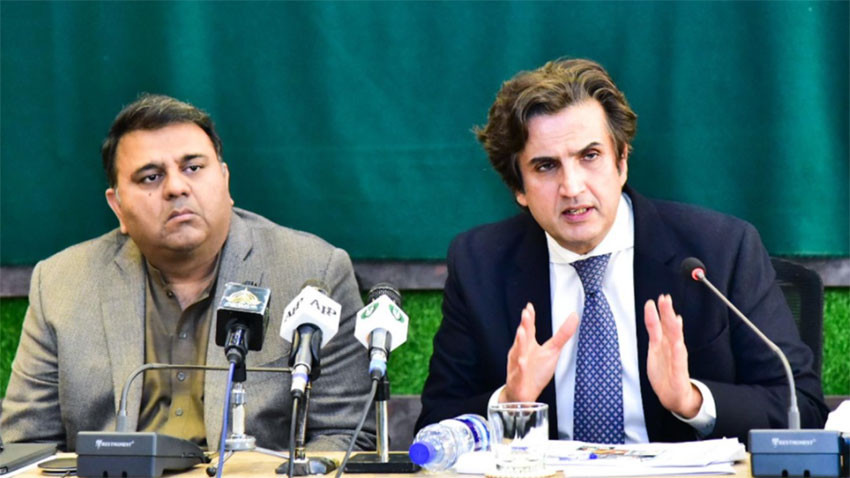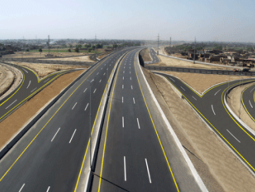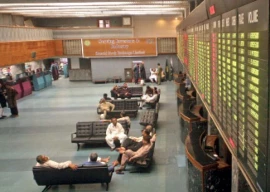
The government on Wednesday unveiled a new policy for the Small and Medium Enterprises (SME) sector that laid special focus on promoting around 5 million businesses through facilitation in registration, streamlining of taxes, access to credit and provision of land.
Industries and Production Minister Khusro Bakhtiar announced the SME policy at a joint press conference with Information Minister Fawad Chaudhry. Bakhtiar said that it was for the first time that the policy had been formulated with a proper implementation mechanism.
“The policy is not only directional but many of its initiatives have already been implemented,” he said. “The policy has relieved the businessmen of regulatory burden by either excluding the condition of obtaining no-objection certificate (NOC) or have minimised its requirements,” he added.
“Anyone interested in starting a new business will not have to go from pillar to post for obtaining the NoC or involving any inspector. A ‘Zero time to start up’ initiative has been introduced under which the sector has been divided in three categories: low, medium and high-risk SMEs.”
The SME sector plays a crucial role in promoting inclusive economic growth in addition to providing 78% of employment, excluding agriculture, and promoting exports. At present, there are around 5 million SME businesses in the country, including 1 million in the manufacturing sector.
According to the industries minister, the policy was made in 2007 but only on papers. However, this time now, he added, it was being introduced with an implementation mechanism under the supervision of the National Coordination Committee with proper deadlines of tasks.
Elaborating on various initiatives, the minister said that the NoC condition for the low-risk businesses including services sector, wholesale transport has been abolished whereas the medium-risk businesses such as light engineering, leather, auto-parts, sports goods and cutlery can get approval in 30 days. “The SMEs working in explosive, fire, boiler and chemicals have been put in high-risk category.”
According to Bakhtiar, the policy introduces a self-declaration scheme under which the businessmen will follow the relevant laws voluntarily. He said that only 2 percent of the self-declaration would be inspected physically.
“The government has developed a web portal, through which the businesses that are going to be inspected will be given the date of inspection. This will reduce human intervention and promote transparency and check corruption,” Khusro Bakhtiar maintained.
Another initiative taken under the scheme is the streamlining of taxes for SMEs. “Under the policy, turnover tax of 1.25% has been reduced to 0.25% for the business having turnover of less than Rs100 million and 0.5% for those having turnover from Rs100 million to Rs250 million,” Bakhtiar said.
Read More: Minister lays stress on better SME productivity
“However, if anyone is not interested in turnover tax and want to claim withholding tax then they will have to opt for income tax mode, which will be 7.5% for business with turnover of less than Rs1 million and 15% for those having turn over from over Rs100 million to Rs250 million,” he added.
Under the new policy, the minister continued, women’s enterprises had been given a 25% rebate in tax, adding that these initiatives had already been taken by the government.
In addition to giving people access to finances, the minister said, the government had launched the SME Asaan Scheme, under which the federal government and commercial banks would give guarantee-free loans of up to Rs10 million to 30,000 new businesses.
In case of the business failure, he added, 40 to 60% loss would be borne by government and the commercial banks. “The government has already earmarked Rs23.5 billion for this purpose. There are several other schemes the government will introduce to promote SME sector.”
About the provision of land, the minister said, the federal government in collaboration with Punjab and Baluchistan and Khyber Pakhtunkhawa governments had earmarked 4,200 acres of land, which would be transformed into 19,500 plots to provide to the businessman on easy loans.
In Sindh, the minister said that the federal government would provide such plots in Karachi from its industrial parks. However, at the same time, he requested the Sindh government to also earmark the land for distribution among the SMEs.
“The government has earmarked Rs30 billion funds for the Small and Medium Enterprise Development Authority (Smeda) which will be utilised for the development of the SME zones in Wazirabad, Gujranwala and Gujarat triangle,” he said.
“SMEDA is also being transformed to make it a private-sector driven body,” the industries minister told reporters. “The SMEs will also have share in the public procurement,” he said, adding that a plan was being prepared to fix quotas for the SMEs.
Speaking on the occasion, Fawad Chaudhry highlighted the importance of developing strong industrial foundation to promote growth and cater to the needs of 220 million population. He said unless the industrial sector was promoted, it would be hard to come out of economic problems.



1735884123-0/meghan-(4)1735884123-0-165x106.webp)






















COMMENTS (1)
Comments are moderated and generally will be posted if they are on-topic and not abusive.
For more information, please see our Comments FAQ